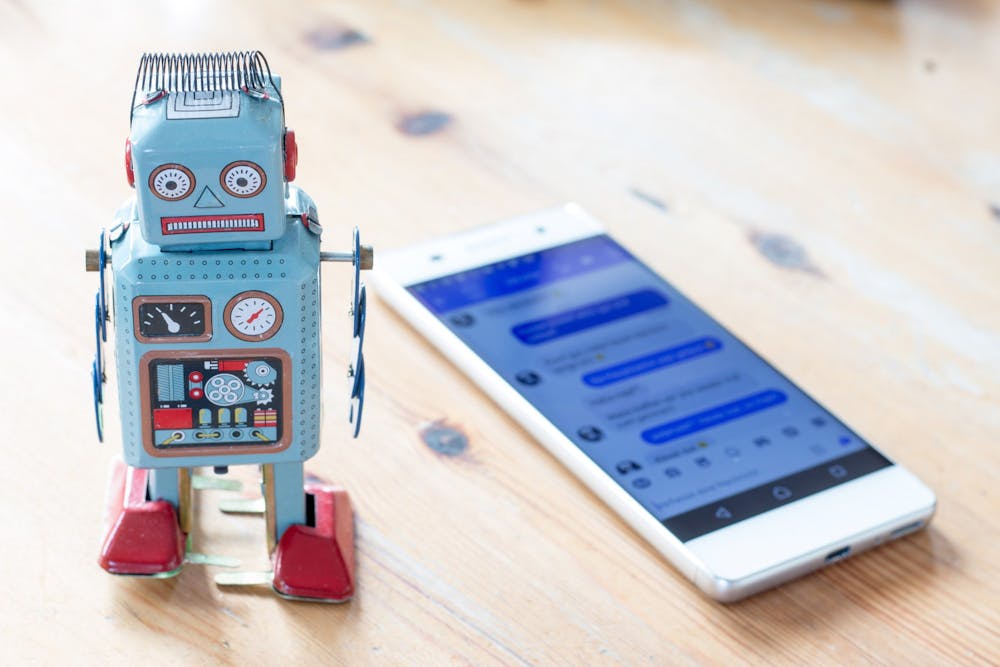ChatGPT is a new, innovative AI chatbot created by OpenAI that can interact in a conversational manner. It can take a prompt and produce unique written responses, solve math and science problems and produce computer code. Some IU professors say ChatGPT should not be banned but instead embraced as a way to supplement their teaching.
Even though ChatGPT poses a threat to all disciplines, universities are beginning to brainstorm ways to welcome and incorporate the tool, such as using it to create quizzes, make lesson plans and provide sentences with grammar structures that students can correct and analyze.
Greg Siering, director of the Center for Innovative Teaching and Learning at IU, said imposing policies that would discourage students from using ChatGPT could weaken relationships between the students and professors, possibly making it easier for them to cheat.
Siering said one of the most productive ways to prevent students from using ChatGPT is to talk to them about the implications of relying on AI, stressing that the more students use ChatGPT, the deeper the hole they dig for themselves.
ChatGPT presents some major limitations: it overuses certain phrases, makes up responses and does not ask clarifying questions when confused by the input.
“We can help those students figure out those ways of making their projects more meaningful to them through how we design assignments,” Siering said.
Siering said teachers need to understand ChatGPT’s potential to properly redesign their class to be AI-friendly. He recommends holding class discussions about the limitations of ChatGPT and when it is appropriate to use it.
Critiquing writing generated by ChatGPT, using it as a brainstorming tool for papers and introducing assignments that require students to make a video or poster are also ways to use to the tool, he said. Recognizing its flaws can encourage students to build their critical thinking skills and learn how to work with AI.
Siering discourages banning ChatGPT because it will only become more relevant and popular within the academic realm.
“(ChatGPT) probably won’t serve us very well in the long run because that ignores the subtleties that an instructor can put in place,” he said. “I don’t want to handcuff instructors from using it very creatively.”
[Related: IU students express concerns with IU disability accommodations]
IU School of Social Work professor Carol Hostetter said she would not suggest banning ChatGPT on the university level because students are well-versed with technology and can easily find ways to get around any barriers.
“We get scared about change and the pace of change is so rapid these days,” Hostetter said. “But if we can embrace change, we can see it as actually an improvement in our productivity.”
While ChatGPT is free now, it is still challenging to use because of how complicated the system is, Hostetter said. As more AI tools become available, it will be easier to access them. Since people will soon be charged to use ChatGPT, wealthier students will be favored and be more able to afford it.
“You’re not going to have something like this be free forever,” Hostetter said. “The fact that some can afford it and some can’t is going to be a major problem.”
[Related: Despite good intentions, MCCSC TVs elicit conflicting feedback]
As for catching students using ChatGPT, Chase McCoy — lecturer in the IU Department of Informatics and the Luddy School of Informatics, Computing, and Engineering — said there is no tool that can reliably detect an AI-written paper. Even though GPTZero was created by a Princeton student to combat AI plagiarism, it is not 100% foolproof.
McCoy said GPTZero is not reliable enough since it is only making an informed assumption based on its limited database; it has access to information only through September 2021. Efforts are being made to improve Turnitin’s ability to identify AI-generated text but it currently is not 100% reliable.
“I don’t think we should be trying to police students,” he said. “There are other pedagogical approaches that are better for addressing ChatGPT.”
McCoy said he is required to report ChatGPT as academic misconduct; however — outside of university regulations — he said if someone may confess to using ChatGPT to him, he would not reprimand them. Instead, he said he would suggest having an open conversation with the student and helping them understand when and how the AI went off course in their assignment. This can include catching grammar errors and noticing a lack of personal details.
McCoy said he believes that letting his students know personally through comments after class and emails about how well they are doing can help reduce their reliance on ChatGPT because they are more confident in their abilities.
“There’s a lot more than just acknowledging the tool,” he said. “We have to be supportive teachers.”




